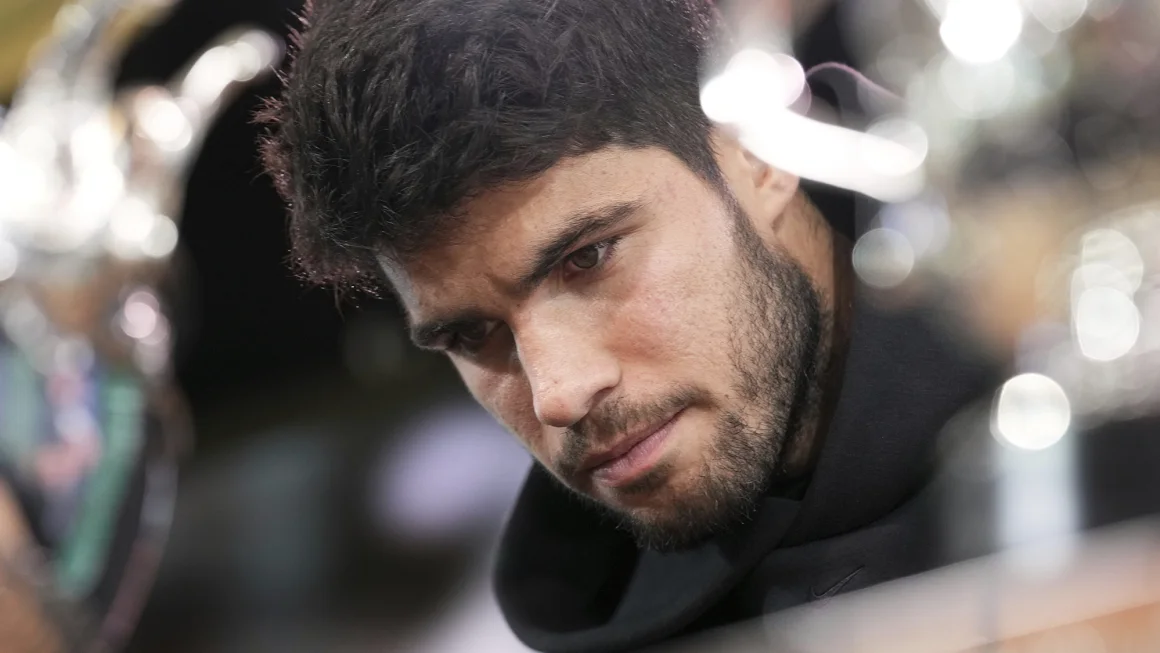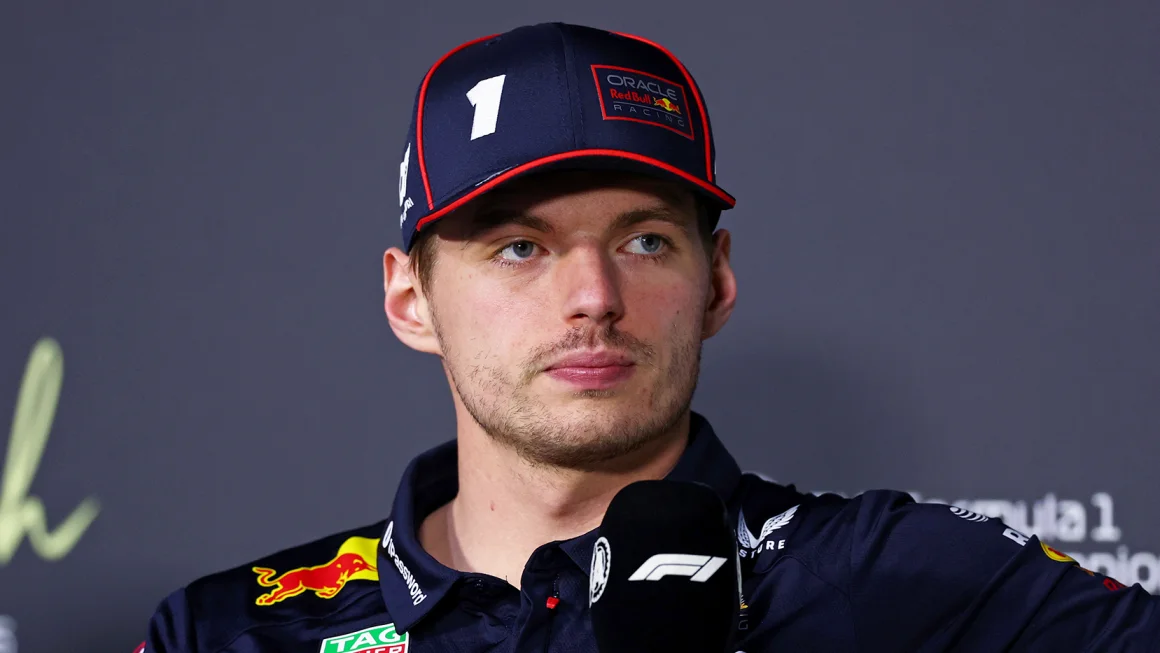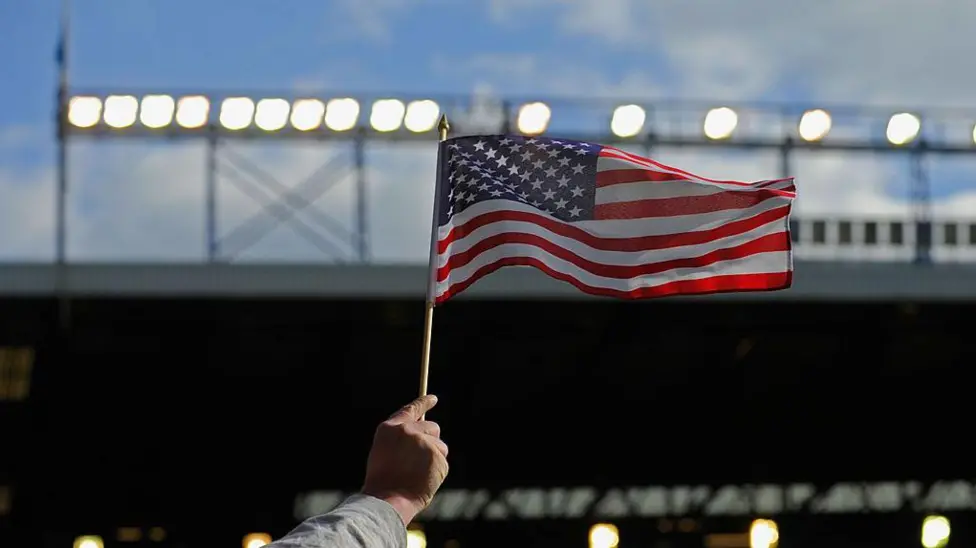
Post By : 2025-05-23"
How play-off final could tighten US grip on Premier League"
Known as the richest match in football, the Championship play-off final has always been a game of huge significance, with promotion to the Premier League on the line.
But this year the stakes could be even higher.
If Sheffield United beat Sunderland on Saturday at Wembley, the level of influence wielded by American investors in the Premier League will reach an unprecedented level, with all three promoted clubs controlled from across the Atlantic.
Remarkably, the Blades would become the 12th US-owned club in the top flight, closer than ever to the two-thirds majority of 14 that is needed to impose changes to the Premier League's rules.
With a third of EFL clubs also partially or majority US-owned, and a number of English clubs for sale or seeking fresh investment, it may not be long until that tipping point is reached.
What forces are driving this trend? And what are the potential risks of a US-dominated Premier League?
Buying up the Premier League
In December Everton became the 10th Premier League club to fall under American control when they were bought by the Texas-based Friedkin Group, joining Liverpool, Arsenal, Aston Villa, Chelsea, Manchester United, Crystal Palace, Bournemouth, Ipswich Town and Fulham.
While Ipswich have since been relegated, the promotion of Leeds United (owned by the investment arm of the San Francisco 49ers) and Burnley (AIK Capital) ensured a majority of top-flight clubs next season will be US-owned, with Sheffield United (COH Sports) potentially to come.
That number could soon grow - especially with US-owned Wrexham and Birmingham City now promoted to next season's Championship, joining Norwich City, Millwall, Swansea and West Brom.
When did the trend start?
Twenty years ago the Tampa-based Glazer family bought Manchester United in a controversial, highly leveraged buyout, blazing a trail for other US investors.
However, the hundreds of millions of pounds of debt that was loaded on to United, the £1bn it has cost to service it, and the dramatic decline United have suffered since, both on and off the field, has done little for the reputation of those who followed in their footsteps.
The financial issues that defined the ownership of Liverpool by Americans George Gillett and Tom Hicks between 2007 and 2010 - when the club were at risk of going into administration - also added to the notoriety of US investors.
What's the attraction for US investors?
To make money.
With most US investors in English football keeping a low profile and attending few matches, the motive seems to be financial rather than reputational.
While former American owners of Sunderland, Swansea and Aston Villa have lost significant amounts of money after getting involved in English football, others have been a lot more successful.
Although they are despised by many United fans, the Glazers have profited hugely from their ownership of the club, through dividends and the sale of shares that have grown in value, with Sir Jim Ratcliffe spending £1.25bn on a 28% stake last year.
Despite their worst season in decades, and hundreds of millions of pounds of financial losses, United were recently rated the second most valuable club in the world, external at $6bn (£4.4bn).
With closed leagues, there are few opportunities to invest in US pro sports, and when they arise it is very expensive, so the global game of football is an attractive option, especially with NBC's coverage of the Premier League, the Welcome to Wrexham documentary series and the Ted Lasso TV show fuelling interest.
Investors will also be banking on Lionel Messi's participation in the MLS and the USA's hosting of this year's Club World Cup and the 2026 World Cup to help grow the game.
US investors also believe that more revenue can be extracted from English football, whether through media rights, ticketing or sponsorship.
As a minority investor in Burnley, former NFL star JJ Watt is among a number of US personalities to take a stake in British football clubs.
In March he told BBC Sport: "You look at an American football (NFL) club - right now they're all valued at billions and billions of dollars.
"You come over here (to the UK) and the valuations are different and there's more opportunity.
"I wanted to be involved, be in the board meetings, learn and grow, while also injecting something, bringing something to the club in terms of eyeballs to the game.
"Another thing that brings you to English football is the history, tradition, passion and supporters."
According to sport finance expert Christina Philippou, US investors are also "bullish" about the potential of virtual reality technology when it comes to giving fans a match-going experience, without going to the stadium.
"Some are even confident that advancements in avatar technology could one day allow fans to watch live 3D simulations of Premier League matches in stadiums all over the world," she wrote.
Growing US investment 'concerning'
During the attempted launch of the European Super League (ESL) in 2021 three American Premier League club owners - Manchester United's Joel Glazer, Liverpool's John W Henry and Arsenal's Stan Kroenke - formed part of the ill-fated organisation's leadership group.
Having sparked a crisis and been widely condemned by fans and other clubs, the breakaway collapsed within days.
But the proposal that the founding clubs would have been guaranteed entry to the ESL without needing to qualify each year was a clear move in the direction of American pro sports, which operate in closed, franchise-based systems without promotion or relegation.
That sense of a culture clash with the traditions of the English football pyramid was only reinforced in 2022 when Chelsea's American co-owner Todd Boehly expressed his hope that the Premier League took "a little bit of a lesson from American sports" in a bid to boost broadcast revenue.
His controversial proposals included a 'north versus south All-Star match' and relegation play-offs.
That prompted former Manchester United and England defender Gary Neville to say that US investment into English football was "a clear and present danger to the pyramid and fabric of the game. They just don't get it."
Niall Couper, chief executive of football campaign group Fair Game, told BBC Sport: "The growing number of American owners in the Premier League is concerning. Many arrive with a franchise mentality - focused on profit, closed leagues and commercialisation at the expense of community and tradition.
"The tipping point could well come when two thirds of Premier League clubs are owned by Americans - a milestone that we are moving rapidly towards. The last hope for fans and the wider football pyramid is the incoming independent football regulator."
"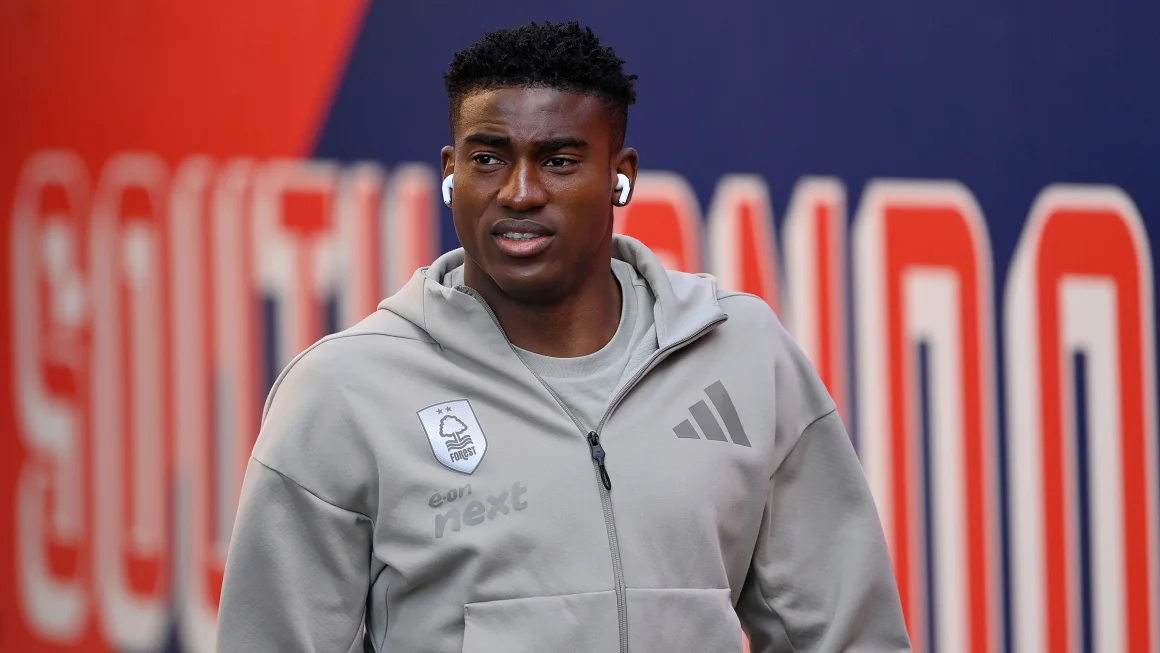
Premier League striker reportedly placed in an induced coma after ‘urgent’ surgery on serious abdominal injury
Nottingham Forest st
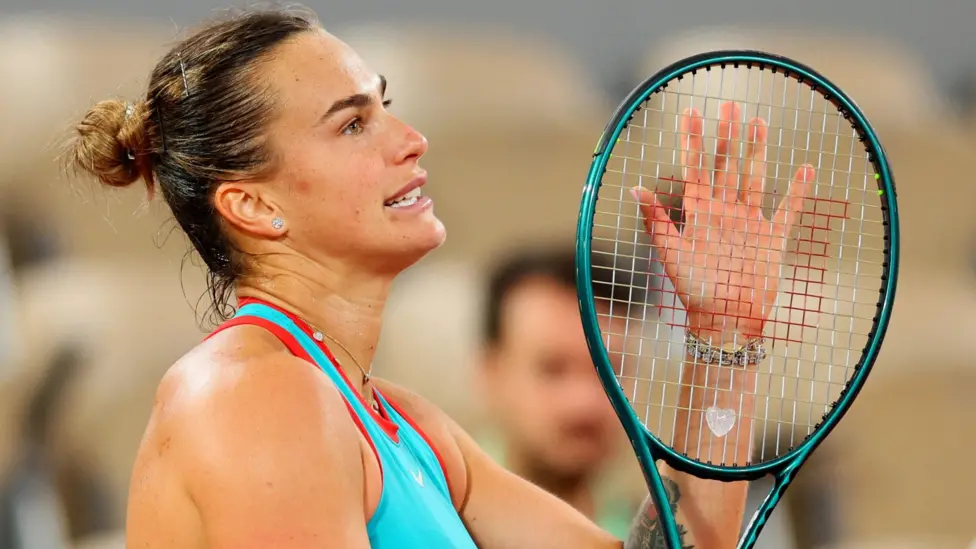
Sabalenka loses only one game in Paris opener
World number one Aryna Sabalenka droppe
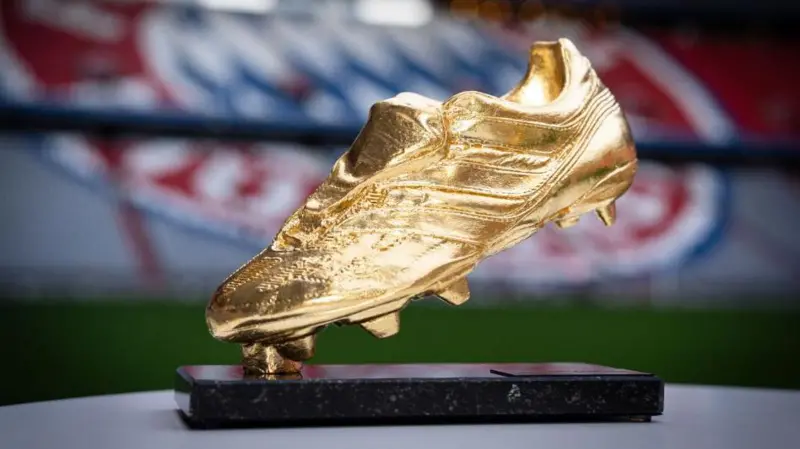
Who will win the European Golden Shoe?
League titles have been won, relegation
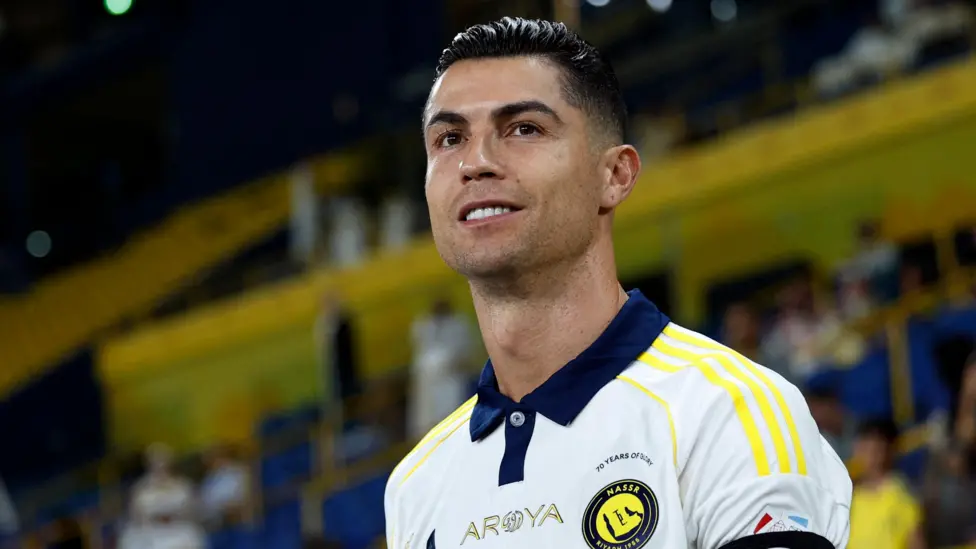
Ronaldo 'could play' in Club World Cup - Infantino
Fifa president Gianni Infantino has cla
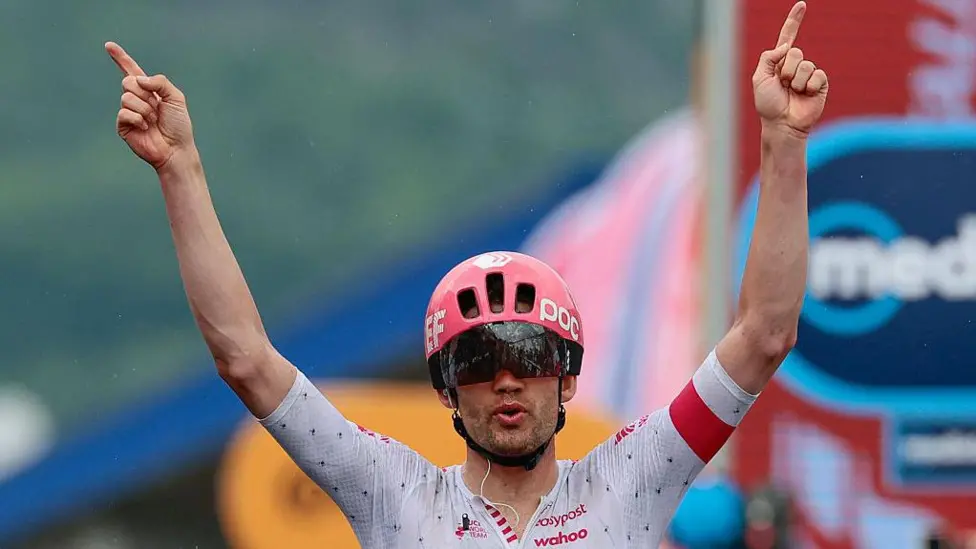
Yates up to second at Giro as crash affects GC battle
Asgreen held on for a remarkable breakaway win,

Champion cyclist sentenced over Olympian wife's car death
Former world champion cyclist Rohan Dennis has
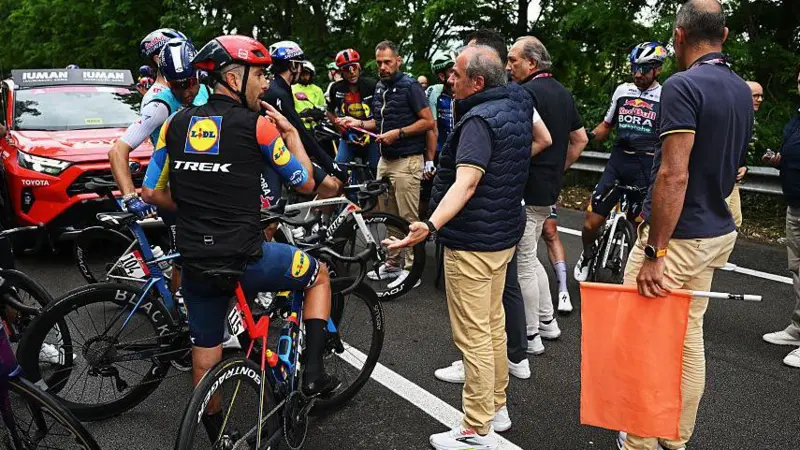
Mass crash disrupts Giro stage six as Pedersen retains lead
Australian Kaden Groves of Alpecin-Deceuninck s
